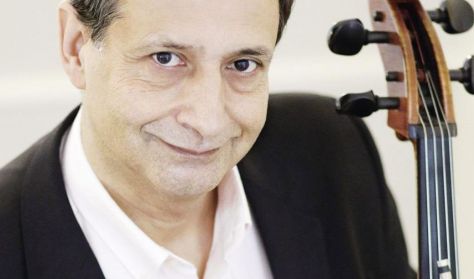John Stanley: Concerto for Strings in D minor, Op. 2, No. 4Arcangelo Corelli: Concerto Grosso in D major, Op. 6, No. 1Antonio Vivaldi: Cello Concerto in A minor, RV 419Wolfgang Amadeus Mozart: Horn Concerto No. 3 in E-flat major, K. 447Benjamin Britten: Simple Symphony, Op. 4The second BFO concert in this year’s Concertino series, featuring music from Corelli to Britten, will spotlight horn player Zoltán Szőke and cellist György Kertész in the spirit of virtuosity, intimacy and clarity.English, Italian and Austrian music, various periods and musical schools, as well as special solo instruments: the closing concert of our chamber music series will offer the usual diversity. The first half of the concert will introduce three faces of the Baroque concerto. First up will be a piece by John Stanley, the outstanding 18th century organist and composer who lost his eyesight as a child. The work reflects the influence of Corelli and Handel, yet its musical seasoning is decidedly English: it is characterised by festiveness, density and a light touch of melancholy.Corelli’s instrumental concerti proved the most important models for his conteporaries. His Op. 6 set of concerti grosso made it fashionable to use two violins and one cello in the contrasting solo group. Vivaldi, however, followed the Venetian example: unlike Corelli’s five-movement work, his cello concerto consists of three movements, is also simpler in form and offers the solo instrument more opportunities for solos.The concert continues with a piece composed several decades later: Mozart’s Horn Concerto No. 3. Mozart composed all four of his horn concerti between 1783 and 1791 in Vienna, for the horn player Joseph Leutgeb. The playful comments found in the score attest to a friendly relationship between the two, while the music also highlights Leutgeb’s exceptional virtuosity.Benjamin Britten dedicated a work to his viola teacher. In 1933, at the age of twenty, he decided to revisit eight dance themes he had composed as a child. He arranged them into pairs, and playfully called the resulting four-movement composition Simple Symphony. The titles of the movements are invariably alliterative: Boisterous Bourrée, Playful Pizzicato, Sentimental Sarabande and Frolicsome Finale.

